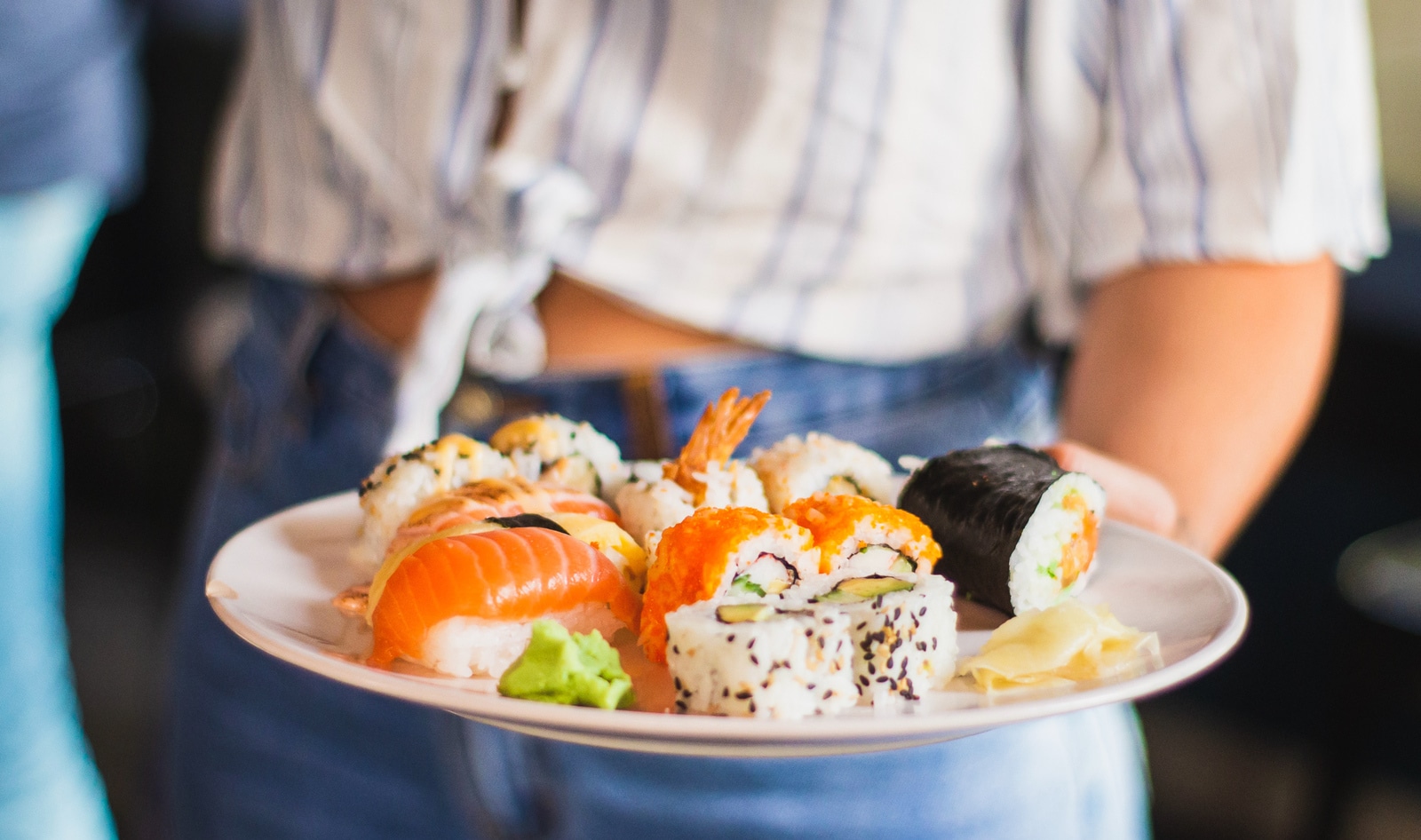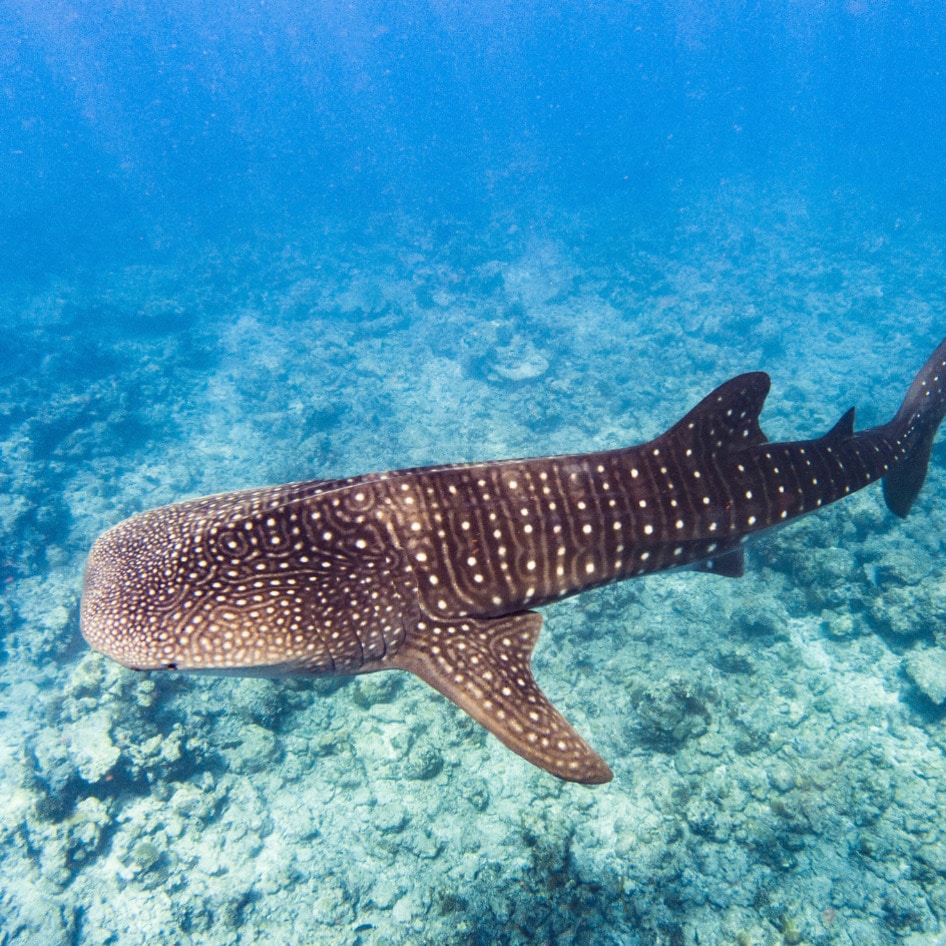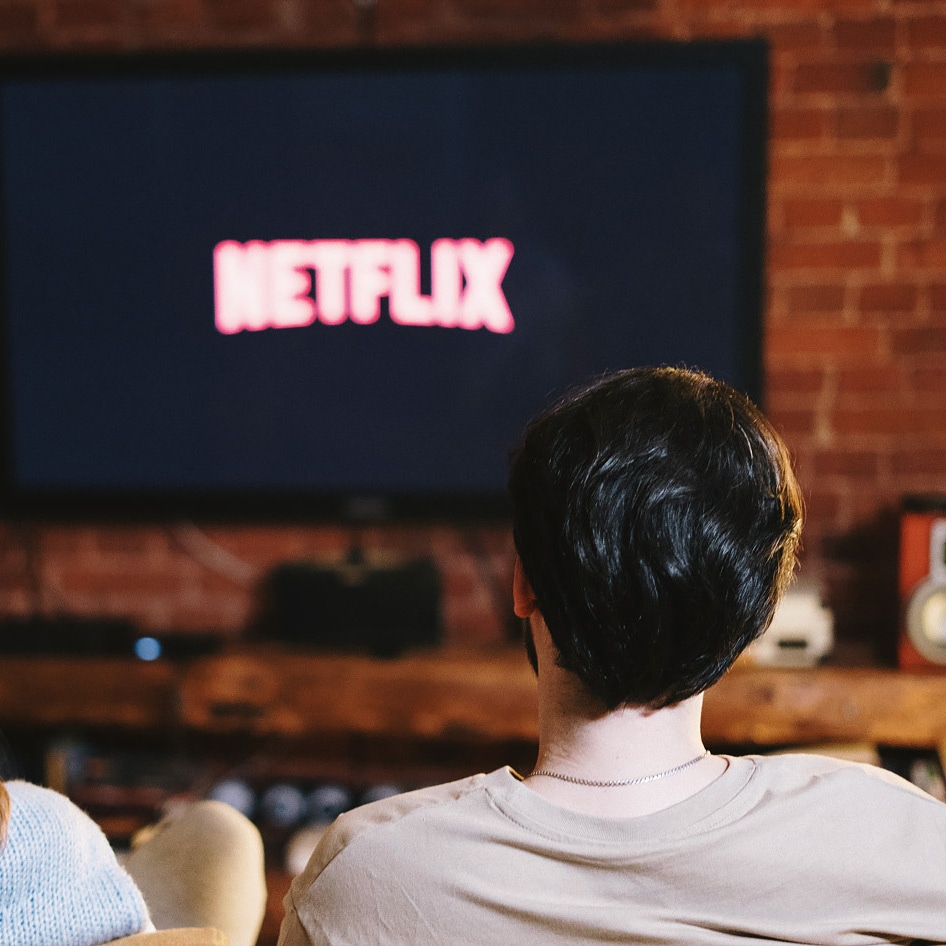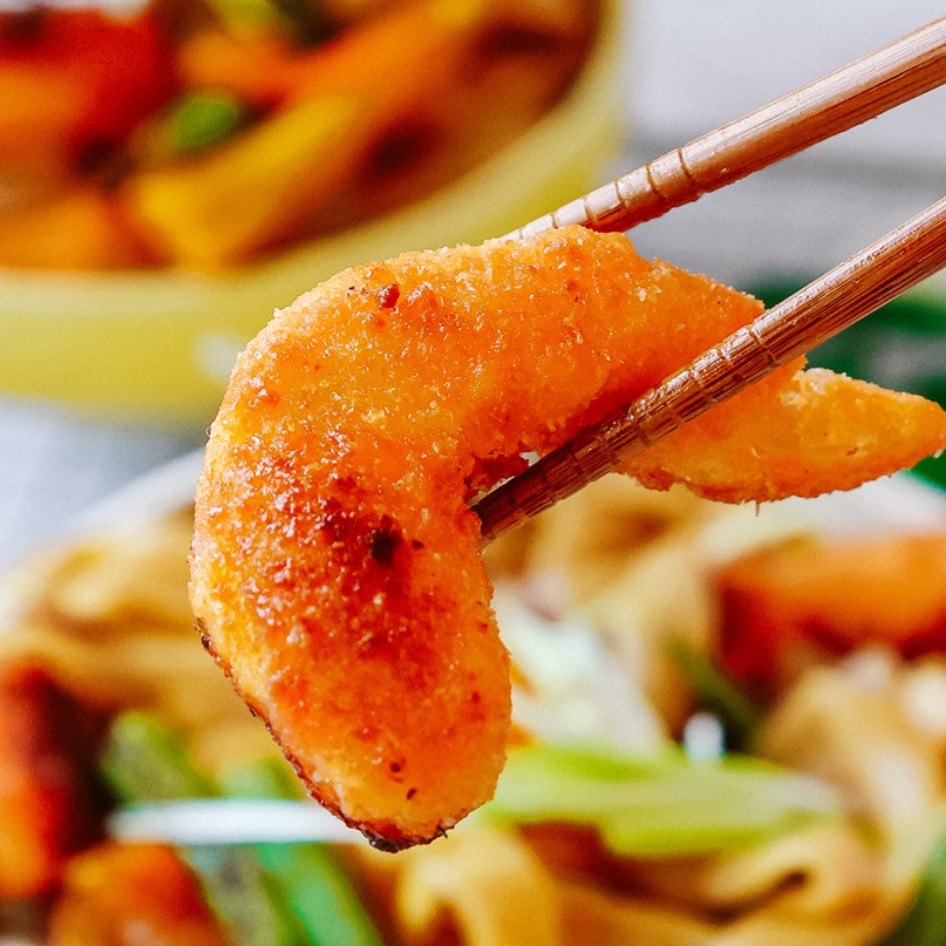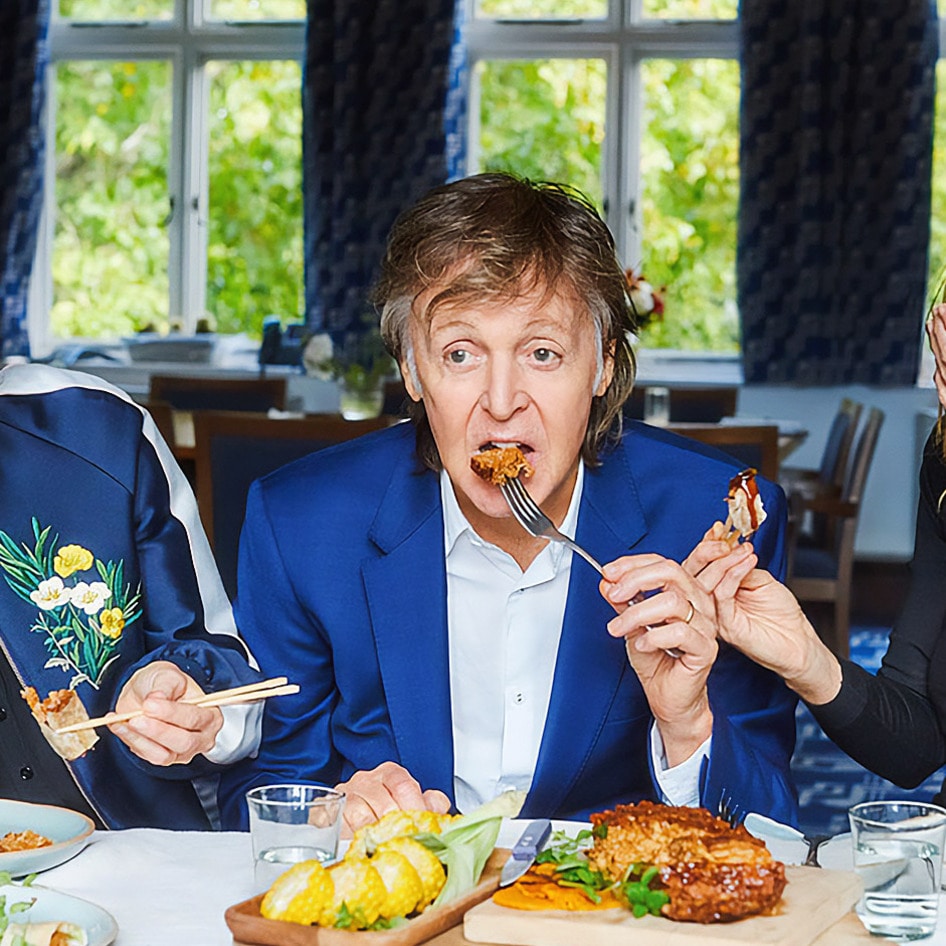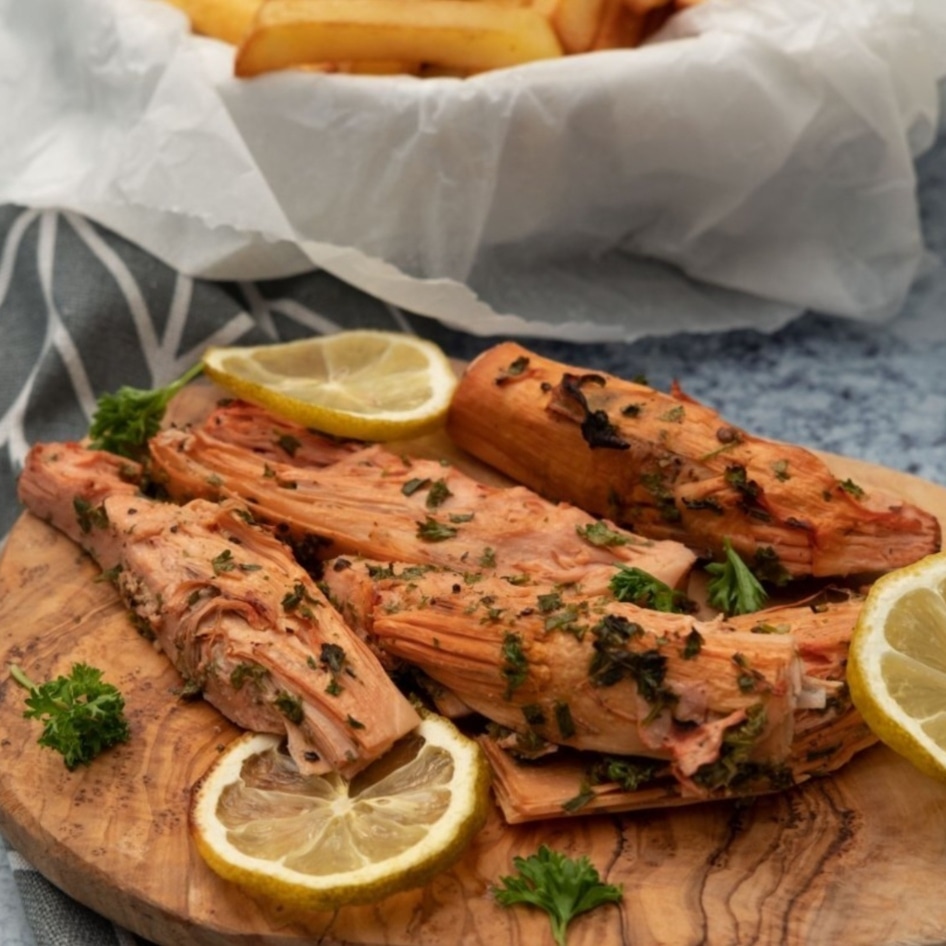When Seaspiracy was released in 2021, I knew I had to watch it after my pescatarian boyfriend told me he was never eating fish again.
A bit more context: this man didn’t just eat fish, he’d catch it and smoke it himself. It was more than food, it was a hobby. As a vegan, I was glad Seaspiracy did its job for him but wasn’t particularly excited to see it myself. I assumed it would be a 90-minute retelling that confirmed my beliefs and told me what I already knew. I was so wrong.
Seaspiracy grabbed my very limited attention span and even made me tear up (and I. Don’t. Cry.). Everyone—vegan or otherwise—can learn something from this film.
‘Seaspiracy,’ two years later
Two years on, and the issues the documentary covers are still, unfortunately, prevalent today—the truth is, we’re far from fixing the food system. But if you want inspiration to change how you eat, here are nine facts that will help you swear off seafood forever. And for extra motivation, I recommend turning on Netflix and giving Seaspiracy a fresh watch.
Fish facts that will make you say no to seafood
1Plastic is bad. Like, whales-full-of-plastic-bad
When it comes to plastic pollution, I could do better. A lot better. I order a lot of vegan takeout and take full advantage of the plastic baggies when picking up my produce at the grocery store. After seeing whale carcass after whale carcass full of plastic on Seaspiracy, I realized just how dangerous my nonchalance can be.
But the problem goes further than whales. Seals, turtles, fish, and other sea creatures are all at risk of consuming plastic, and birds, too. In fact, according to one 2014 study, nearly every type of seabird has consumed plastic. And more recent research has even identified a new fibrotic disease called “plasticosis,” which occurs in a type of bird called flesh-footed shearwaters.
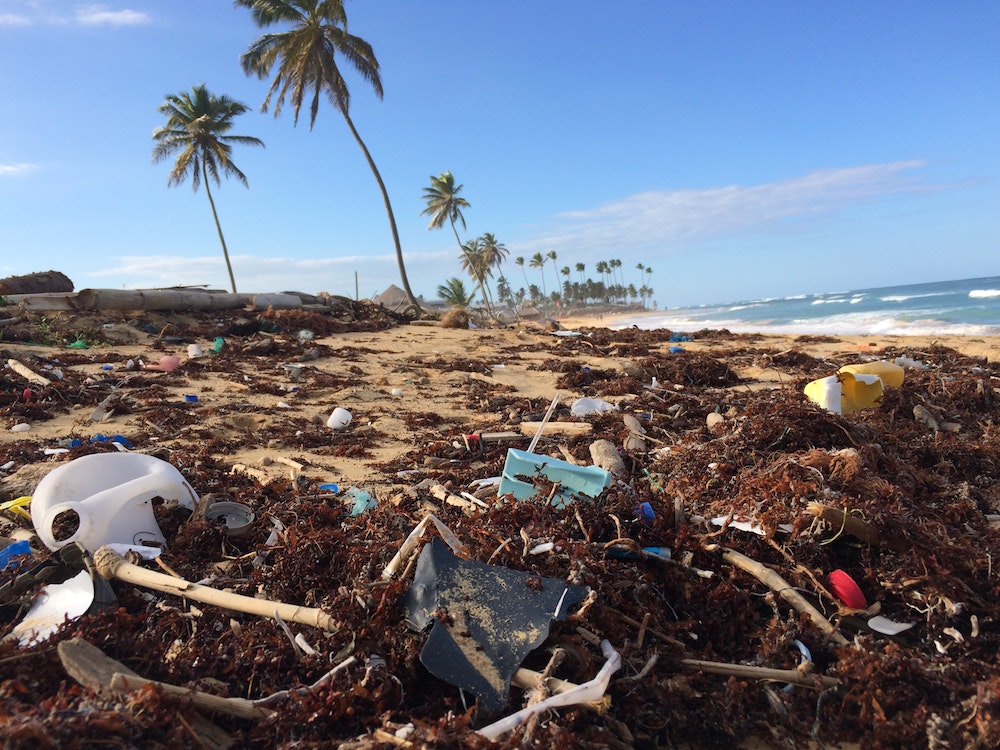 Dustan Woodhouse/Unsplash
Dustan Woodhouse/Unsplash
2 It’s not okay to fish non-endangered species
As vegans, we can all agree that it’s not okay to kill any animal, endangered or not. However, my boyfriend’s friend—let’s call him Bryan—justified his open-water fishing hobby by claiming he only fished for non-endangered animals. Here’s the thing—fishing leads to plastic pollution. There are millions (not exaggerating) of commercial fishing boats in the world, and their discarded fishing nets are piling up in our oceans. So, for everyone who’s giving themselves a pat on the back for using a paper straw while enjoying all-you-can-eat sushi, you might want to reassess your strategy.
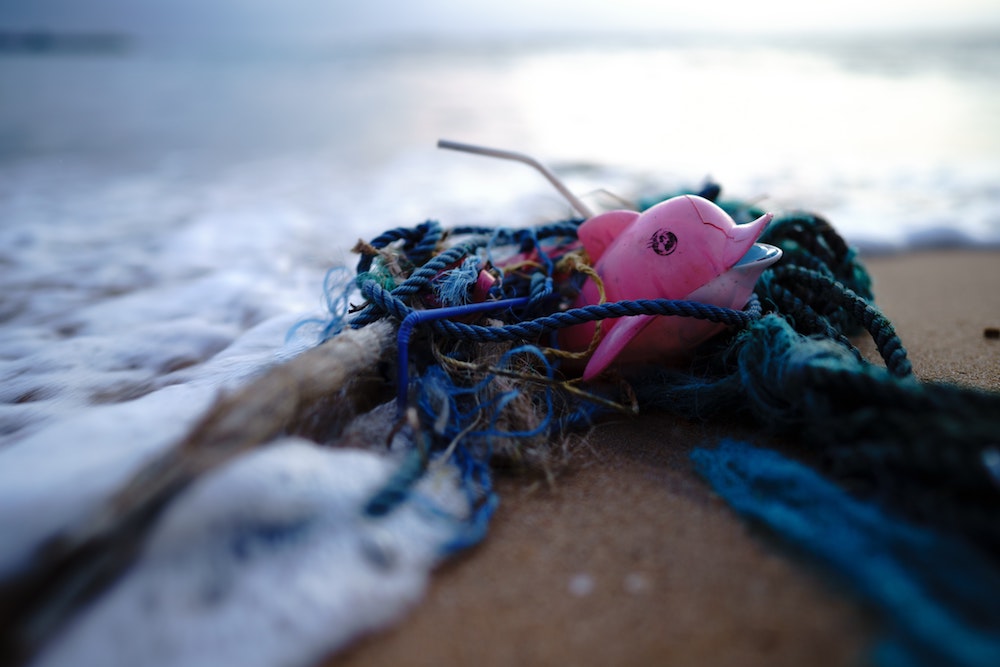 Sören Funk/Unsplash
Sören Funk/Unsplash
3 Let’s talk about bycatch
Here’s another note for Bryan: fishing leads to horrendous bycatch. Dolphins, sharks, turtles, you name it, fishing nets don’t discriminate. Humans kill 11,000 to 30,000 sharks every hour, and while some are intentional for shark fin soup (still not okay), the majority of these sharks are “accidentally” killed thanks to bycatch. The film makes a strong case for ditching fish. Many people are against shark fin soup—it’s wasteful, inhumane, and honestly bland—but they’re okay with eating fish. However, the demand for fish leads to the murder of sharks due to bycatch. It all comes full circle. There is no such thing as a conscious consumer who eats fish. Case closed.
4 Sealife does more for the climate than the Amazon
According to the UN, the ocean is the “world’s greatest ally against climate change.” And that’s because it is the earth’s biggest carbon sink and absorbs around 25 percent of all carbon dioxide emissions. Yep, it’s even more effective than the Amazon rainforest (which now, thanks to deforestation, emits more carbon than it absorbs). In fact, the UN explains: “Ocean habitats such as seagrasses and mangroves, along with their associated food webs, can sequester carbon dioxide from the atmosphere at rates up to four times higher than terrestrial forests” Other examples of blue carbon (aka, ocean life that can sequester carbon) include oysters, clams, mussels, and even sharks, tuna, and whales. People rant about the Amazon burning, but what’s really helping our planet stay afloat are the aquatic species so many love to eat. Chew on that.
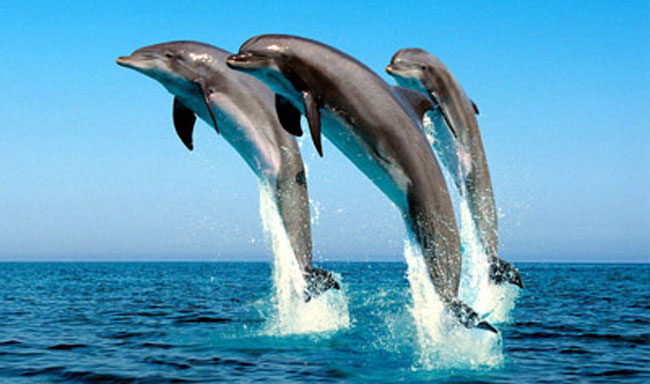
5 Dolphins deserve better
One key topic in Seaspiracy is the Taiji dolphin hunt. What really breaks your heart is not watching the water turn red, but knowing that these dolphins are killed essentially for pest control. Dolphins are seen as competition to fishing vessels, and for some reason, humans believe they deserve the fish more, so they eliminate the competition. The year following Seaspiracy’s release, 500 dolphins were killed by fishermen in Taiji.
6 If you’re anti-slave labor, you should be anti-fishing
The world has not moved past slave labor. It’s impossible to regulate working conditions on the millions of fishing vessels on the high seas, and unfortunately, this means that thousands of people are being exploited on a daily basis. In 2020, for example, one investigation into a South Korean fishing trawler discovered many fishermen from Sierra Leone working in 40-degree heat with no ventilation, sharing small windowless bunks, and instead of wages, they were paid in bycatch.
7 Like land animals, labels mean nothing
We know that “cage-free” and “free-range” don’t carry much weight when it comes to the welfare of farmed animals. According to Seaspiracy, the same holds true for fish. “Dolphin-safe” labels are about as reliable as the legally reneged “happy cows come from California” slogan. Notes are forged, lies are taken at face value, and dolphin-safe or sustainably caught labels are passed out as easily as ketchup at a fast-food joint. You can’t justify fish with a meaningless label.
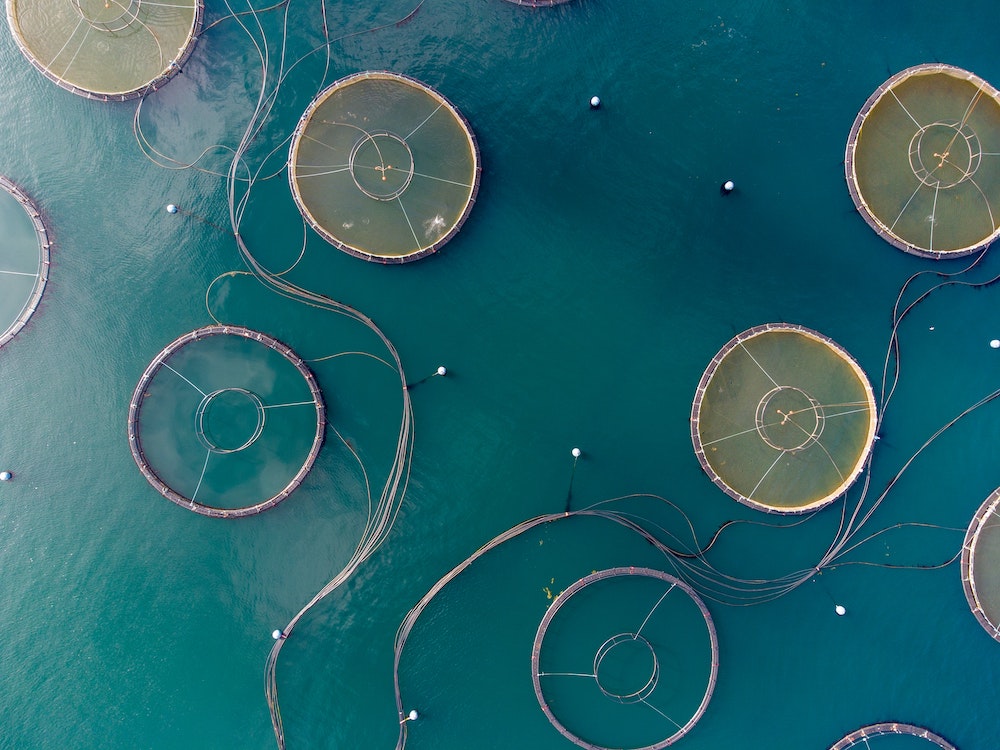 Bob Brewer/Unsplash
Bob Brewer/Unsplash
8 Farmed fish aren’t any better
According to the film, 50 percent of the world’s seafood comes from farmed fish. Unfortunately, it’s really not as sustainable as the industry makes it out to be. As icky as it may sound, farmed fish are fed dehydrated fish. The amount of fish needed to create fish food exceeds the total output of fish killed for human consumption. Essentially, we’re breeding fish to feed fish, not humans. According to the experts, farmed fishing is “biological nonsense.”
9‘Seaspiracy’ will open your heart to all animals
The concept of speciesism—or loving some animals but eating others—is brought up by a Scottish whaler in Seaspiracy. He plainly states that those who consume fish and other animals have no right to criticize the slaughter of whales—an animal is an animal. In his mind, killing one whale is better than killing 2,000 chickens. To him, a life is a life, and his whaling activities actually save animals. In theory, it’s true. But as vegans, we have an edge. Fair warning: the Scottish whaling scene toward the end of the film is extremely hard to watch. It broke me. I blame the perfectly timed, emotional music but also admit that I have a soul, and watching the water turn bright red should crush anyone with an ounce of compassion. Whether we eat animals or not, we all need an awakening sometimes. This documentary does it.
For more about fish, read:
JUMP TO ... Latest News | Recipes | Guides | Health | Subscribe

